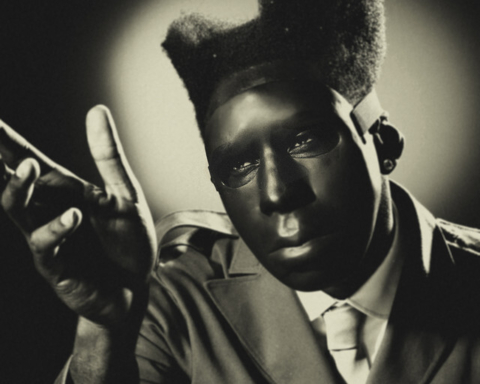The Orenthal James Simpson murder case was a landmark court case. It split demographics. It was racially charged. For the defense and prosecutors, it was a nightmare, a form of hell on Earth.
The case’s timing splits today’s Millennials, too — with the older portion raised amidst and bombarded by the case’s headlines, the younger removed from the case’s severity.
Producer Ryan Murphy — among an impressive rank of fellow executives — changed that dynamic. Known for his unsettling American Horror Story series, Murphy pioneered a whole new series last year, American Crime Story, reviving the tension of the longstanding case in the series’ debut season The People v. O.J. Simpson. And the timing of its Netflix release — offering new interest in the production — is magic, with rumor of Simpson’s release (on armed robbery accounts, unrelated to the case at hand) this year.
Murphy’s newest production move, FX’s American Crime Story, takes a similar approach to AHS, using real-world crimes as the foundation for dramatized revivals.
While the series debuted last year, it recently made its way to Netflix and — as the fad goes — everyone’s binge-watching. If that’s not convincing enough, the masterpiece has garnered an almost impossible 97 percent rating on Rotten Tomatoes.
It’s captivating, partially because of the series knockout, A-list cast and the plot’s nerve wrecking development on grounds of cold fact. Cuba Gooding Jr. plays a less visually similar, but personality perfected version of Simpson. John Travolta joins the cast as lead defense attorney Robert Shapiro in an uncanny visual finesse. David Schwimmer plays Simpson’s late best friend and co-attorney Robert Kardashian, the patriarchal pioneer of the Kardashian family brand.
It’s painfully accurate, so accurate that Marcia Clark, Simpson’s prosecutor (played by AHS cast member Sarah Paulson), told Ellen DeGeneres she’s flattered by Paulson’s representation, but unsettled by the accuracy of Murphy’s work. The case — which Clark’s team lost in an overwhelming jury vote favoring Simpson — is something she doesn’t care to relive; viewers feel that same pain in Murphy’s carefully crafted, behind-the-curtain and in-the-courtroom look at the dubbed “case of the century.”
The pain of the victim’s family comes through. The pain of Los Angeles citizens is understandable. And, beautifully, viewers have a choice to experience Simpson or Clark’s discomfort — or a mixture of both.
The piloting episodes, in Clark’s confidence, seem to skew guilty. Later episodes, as Clark’s prosecution crumbles and Simpson’s strengthens, breathe the possibility of innocence.
Opening with the discovery of Nicole Brown Simpson (Simpson’s past lover) and restaurant owner Ron Goldman’s lacerated bodies, Murphy shows how high profile murder is commoditized — offering a choice to both the prosecution and defense: Storytelling as fact. It’s unethical and, to some, clearly lined Simpson’s defense — with Shapiro, Kardashian and (late edition to the defense) Johnnie Cochran pulling what’s dubbed “the race card.” They assert Simpson was framed, in a racist cop’s fit of racist rage. Clark and her co-counsel Christopher Darden stick with the facts: A glove, a droplet or two, a record of abuse.









